REDSTONE ARSENAL, Ala.--Like many of the world's devout believers, Lula Rochelle prays daily that the Japanese people will have the strength and fortitude to survive the troubles their country is facing after living through a devastating March 11 magnitude 9.0 earthquake and subsequent tsunami.
But, for Rochelle, her prayers are also laced with gratitude for God's help in overcoming her own challenges during the immediate harrowing hours following the natural disaster.
"I pray they will recover. Every day, I think about that I was there when this happened. I pray everything will be OK for the people and I thank God I made it back home to my family," she said.
Rochelle, now at home with her sister and two nieces she cares for, was among a handful of Redstone Arsenal employees who were in Tokyo on business related to foreign military sales when the earthquake struck. She said teamwork, quick decisions and prayer helped the group to confront challenges in their quest to return home.
"The good thing was we all pulled together. There was a lot of teamwork. We had to decide quickly what to do and then we had to stick together, or we wouldn't have gotten out," she said. "I did a lot of praying and I had a lot of faith that God would take care of us."
Rochelle, a lead traffic management specialist for foreign military sales who works for the Distribution, Transportation and Packaging Division of the Aviation and Missile Command's Integrated Materiel Management Center, and co-worker Brian Johnson traveled to Japan on March 5 for a week of meetings between about 10 Army employees from Redstone and White Sands Missile Range, N.M., and the Targets Management Office, Program Executive Office for Simulation, Training and Instrumentation, headquartered in Orlando, Fla., and representatives of the Japanese Defense Agency. The group included Jim Schiermeyer of AMCOM Safety and Joe Readus of AMCOM's Security Assistance Management Directorate.
"We coordinate all transportation aspects for SAMD," Rochelle said of the work she and Johnson do for IMMC. "We are subject matter experts for transportation. We were in Tokyo for the annual Chu-SAM program coordination meeting. Chu-SAM is a Japanese produced (surface-to-air) missile that they flight test and train with at White Sands annually (in the fall)."
The first indication that something was amiss came March 9 when Johnson and a few members of the group said they had felt earthquake tremors in the early morning hours.
"I used to live in California. We got tremors all the time there. So, I didn't think too much of it," Rochelle said. "It was my 12th trip to Japan and I had never felt a tremor there. So, I really didn't pay it much attention. But, the one on Friday, that was big."
On March 11, the group had just left their final meeting of the week and had gone to the New Sanno government-sponsored hotel to buy some souvenirs. The hotel, managed by the Navy and the destination of choice for U.S. military travelers in the area, features a PX, and shopping and dining options.
"We had finished up shopping and we were sitting around relaxing and eating appetizers when all of a sudden we felt the tremor. I said 'Did you guys feel that'' They said 'Felt what'' and then everything went to rumbling and the chandeliers were moving and at that point everything got chaotic," Rochelle said.
"People were running and screaming and crying. And then everybody started yelling 'Get outside! Get outside!'"
Rochelle and the others went to an open courtyard area of the hotel, where they witnessed for themselves the shaking and rumbling of the buildings.
"It lasted five to 10 minutes," Johnson said. "Everything was shaking and the locals were panicking. Everyone rushed outside. I definitely was nervous. When we got outside, I saw big tall skyscrapers swaying back and forth. These buildings are made to withstand earthquakes by swaying. The swaying keeps them from falling. But the swaying was making all the locals really nervous."
Wanting to get back to their own hotel, Rochelle and Johnson and others from their group decided to walk to the metro subway about three blocks away.
"As we approached, people were just standing all in the street. The metro was shut down," Rochelle said. "At that point, I realized how bad it was. The aftershocks were making a 13- or 15-story building across the street sway back and forth, back and forth. I could not believe it. It was the first time in my life that I had stood outside and physically seen a building moving."
The group walked back to the New Sanno.
"We just stood there. We decided to take a taxi, but nothing was stopping. There were no taxis. It took us an hour to wave down a taxi and that was only because it stopped to let two couples out and we jumped in," Rochelle said.
"It took us 30 minutes to get back to our hotel (the Grand Prince Hotel in Akasaka). The good thing was we did get back because some of our friends didn't get back until much later."
Even so, guests at the 40-story hotel were not allowed beyond the first floor. They had to remain in the lobby area.
"Everyone was shaken up, in awe. We didn't know what to expect," she said. "We looked back outside and there was just a mass of people and cars everywhere. You couldn't go anywhere. Subways and buses were shut down. Taxis were running, but the roads were jammed. You could barely walk anywhere outside because there were so many people.
"Tokyo depends a lot on its transportation system and the subways. When roads are shut down, and the subways are shut down, it pretty much cripples the city."
At about 8:30 p.m., hotel guests were allowed back in their rooms. For Rochelle and Johnson, that meant returning to their rooms on the 21st floor, where they called family and tried to sleep. But aftershocks every 30 minutes kept them on edge.
"You could feel the building swaying and you could hear the building creaking. It was just like an old ship with the creaking and the swaying," Rochelle said.
Rochelle was finally able to talk to her supervisor, Judy Rodriguez, by telephone at about 11 p.m. Japanese time, to tell her the U.S. group was OK. The group, which had met every weekday at 7 a.m. for breakfast, decided to meet at that same time for breakfast the next morning and to decide if they could make their airplane flights later that day.
"We had come in on a bus. But there were no buses, no subways, no trains. The only thing that would possibly run was a taxi," Rochelle said.
And, with only four people to a taxi, that meant splitting the group up. Thanks to the fast thinking of Schiermeyer, a taxi was hailed and Rochelle, Johnson and John Lopez of White Sands all joined him for the ride to the airport. Another group, still needing to check out, left about 30 minutes later while the employees from the Targets Management Group decided to wait a few days before trying to leave.
"Delta was still flying and our flight was still scheduled to leave. If we could get to the airport, then we possibly could get out," Rochelle said, adding that a sleepless night of aftershocks combined with uncertainty about another earthquake and the very real possibility of water and food shortages in the city convinced her that the best plan would be to leave Japan quickly.
"We had another adventure on the way to the airport," said Johnson, of the normally 60-kilometer trip.
The foursome crammed into the taxi, with suitcases in the trunk and on their laps and on the floor at their feet.
"The guys in the back had luggage right up to their faces. We couldn't move for six hours. We couldn't use the bathroom. Nothing," Johnson said.
The expressway was closed due to concerns with the integrity of the bridges and elevated portions. They traveled along crowded side roads and through congested towns.
"It usually takes an hour and 40 minutes to get to the airport. So, I was thinking maybe a little longer than that for us. I never thought it would take six hours," Rochelle said. "Our taxi driver had a very sophisticated GPS that he used to find alternative routes to get us there. We were going through different little towns I had never been to before. We took turns that led to dead ends. Our taxi driver would apologize and try a different way. He did a great job."
On that drive, Rochelle did see some of the earthquake's destruction, with the roofs of homes busted up, and cemetery graves markers busted and turned over.
"There was a lot of traffic, a lot of people walking and standing around. Some shops were closed," she said. "At that point, I still don't think the people knew the total impact of what happened. I knew that, at some point, the city would be crippled. With transportation shut down, I knew there would be problems with stores running out of food."
During those long hours in the taxi, Rochelle prayed and meditated.
"I was just praying 'Lord, please help us get there.' We felt if we didn't make the flight, we wouldn't get out," she said.
As they neared the airport - with only 11 kilos to go - they came to a standstill in traffic, at one point only going one kilo in 20 minutes.
"I was so scared we wouldn't get out that day and we'd have to stay the weekend in the airport," Rochelle said. "It was scariest when we were so close to the airport and we thought we weren't going to make it. My heart sunk then."
They finally got to the Narita International Airport at about 2:30 p.m. to catch their 3:25 p.m. international flight to Atlanta. The trip to the airport - normally costing $30 each by bus - cost about $375. The group paid the bill in a hurry, thanking the driver for all he did to get them to the airport.
"We hustled. We jumped out and ran," Rochelle said.
The group encountered a long line of people at the Delta counter.
"It all happened with divine intervention," Rochelle said. "There was no line at priority check-in and two of us had priority so we insisted on going through that line. It took us 10 minutes to check in. There was also no line at security and no line at immigration. We ran to the gate and got there as they were boarding our flight.
"We made it out on sheer determination, and meditation and praying, and just thinking about making our flight."
Others were not so lucky. The second group that left the Grand Prince were abandoned by a frustrated taxi driver at the Tokyo Station. They had to find another taxi, make arrangements to stay overnight again in Japan and book a new flight out of Haneda Airport.
"I was glad to be on that plane. But I was also sad because I knew we were leaving our colleagues behind," Rochelle said.
Johnson felt blessed that the group made it out of Japan on that Saturday flight.
"I could not believe that I was in the midst of all that," he said. "It was only my second time in Japan. I feel very fortunate to have gotten out."
Eventually, the entire team returned safely to the U.S. After doing some checking, they determined that their Japanese associates are also safe for the time being. With a few days off from work, Rochelle is keeping up with the Japanese crisis in the same way as other U.S. citizens - by watching and reading reports in the news media.
"It's amazing to me how well they are handling this situation with all the devastation," Rochelle said of the Japanese people. "They are a peaceful people and a calm people. There is not the shouting, screaming, impatience and loitering that you see sometimes in disasters in this country."
Rochelle has no plans for another business trip to Japan.
"At some point, maybe I will go back," she said. "Tokyo is a beautiful city. It's clean and easy to get around. The people are wonderful. But I don't want to rush back anytime soon.
"Traveling is a really big part of my job. I really am grateful to get the opportunity to travel and see different places in the world. But I try to be as safe as possible. I rely on my faith and have faith that whenever I travel God is going to take care of me."
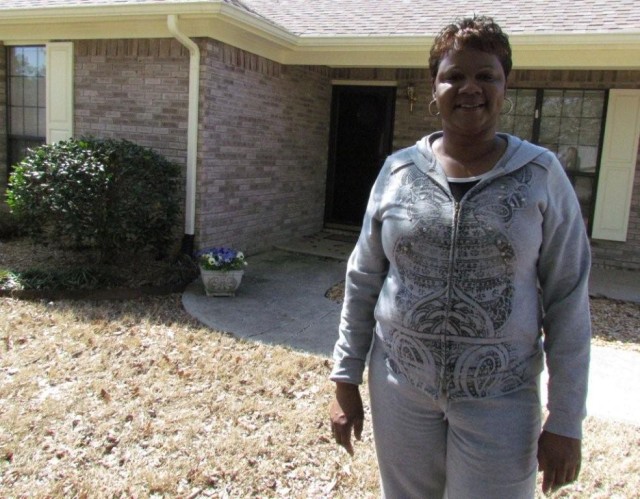
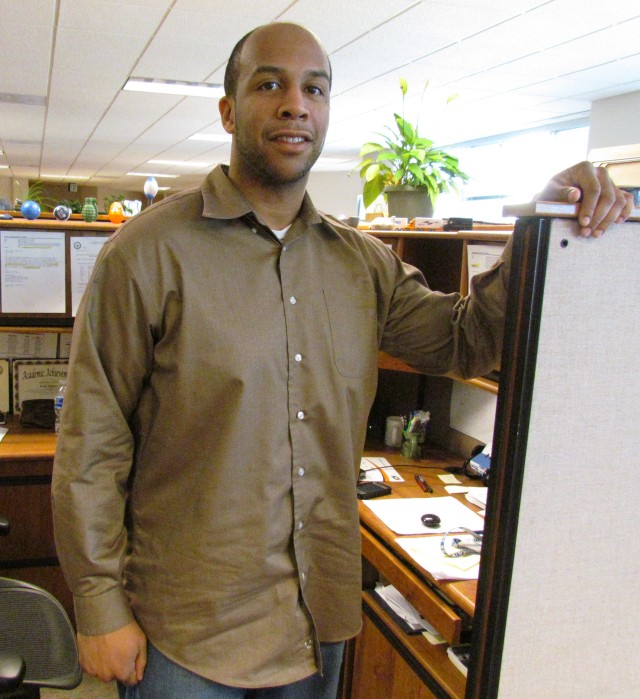
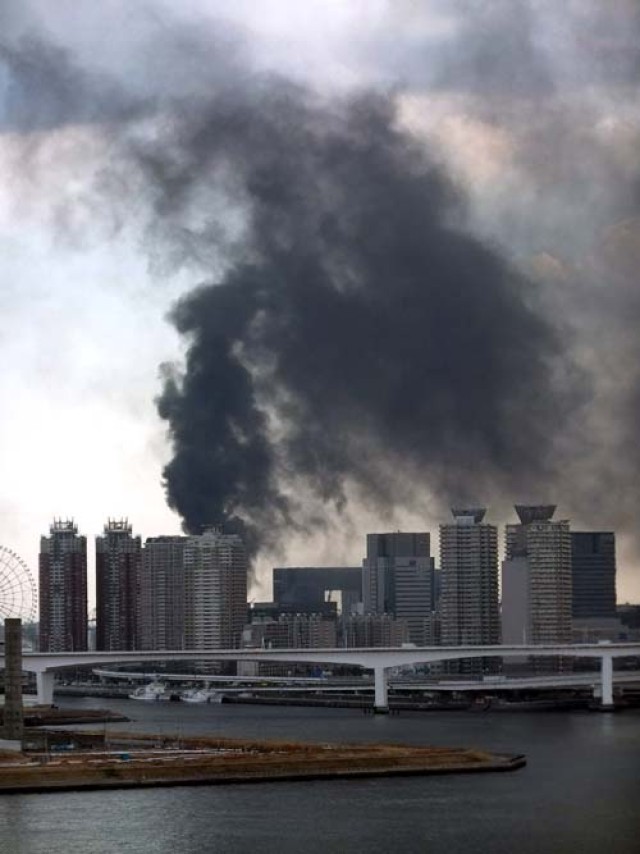
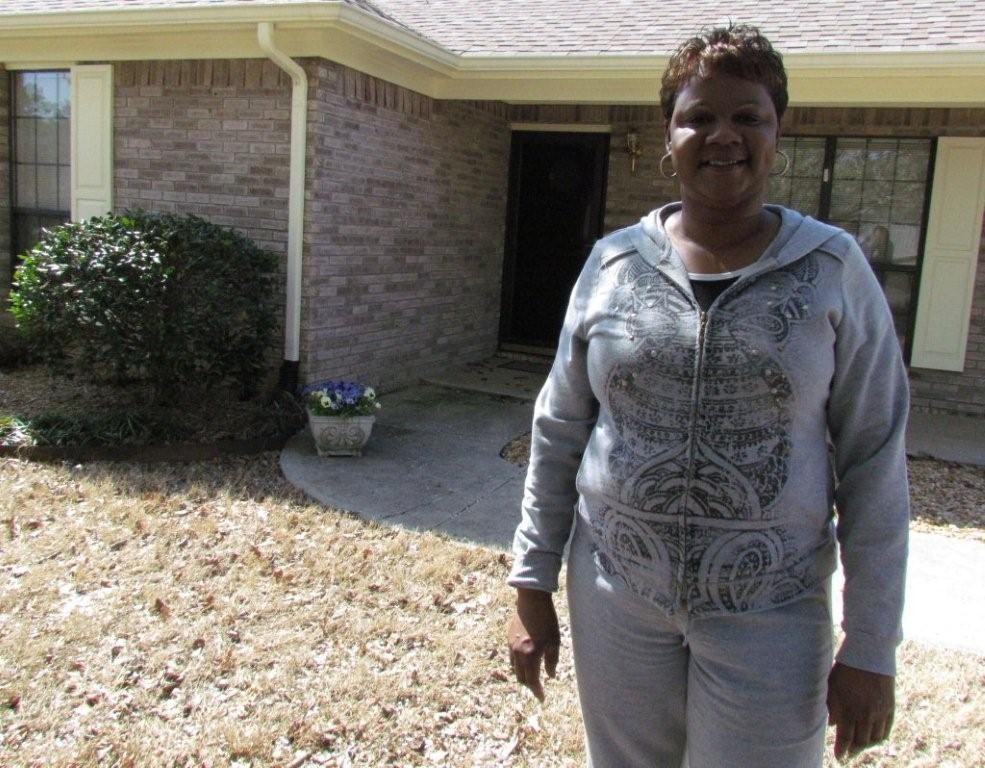
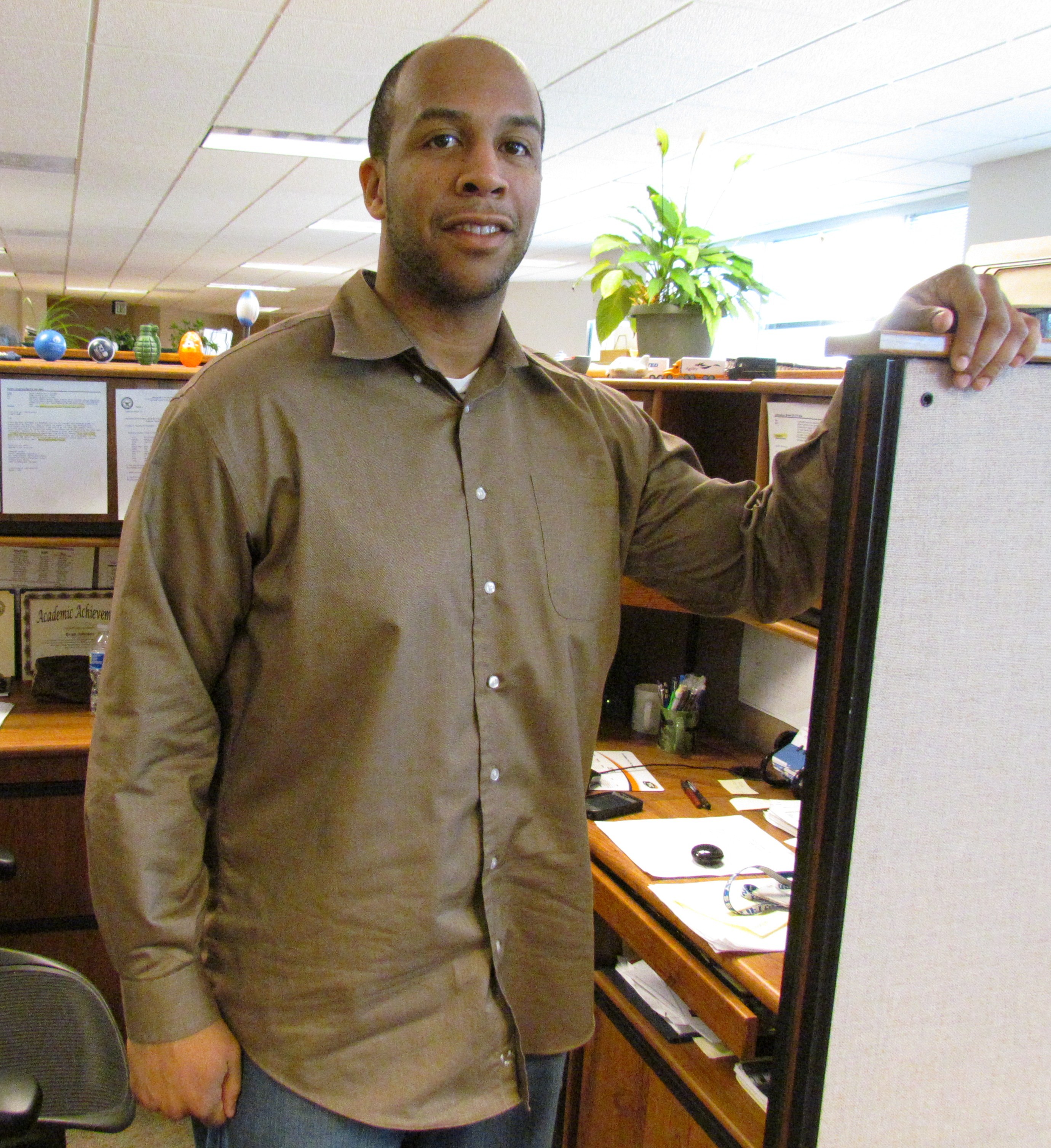
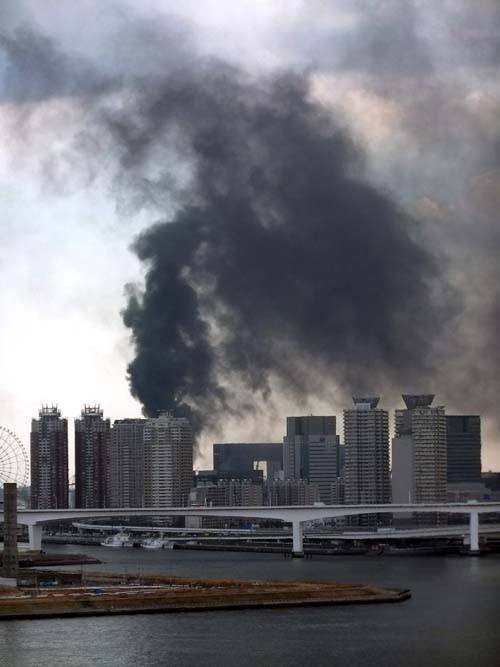
Social Sharing